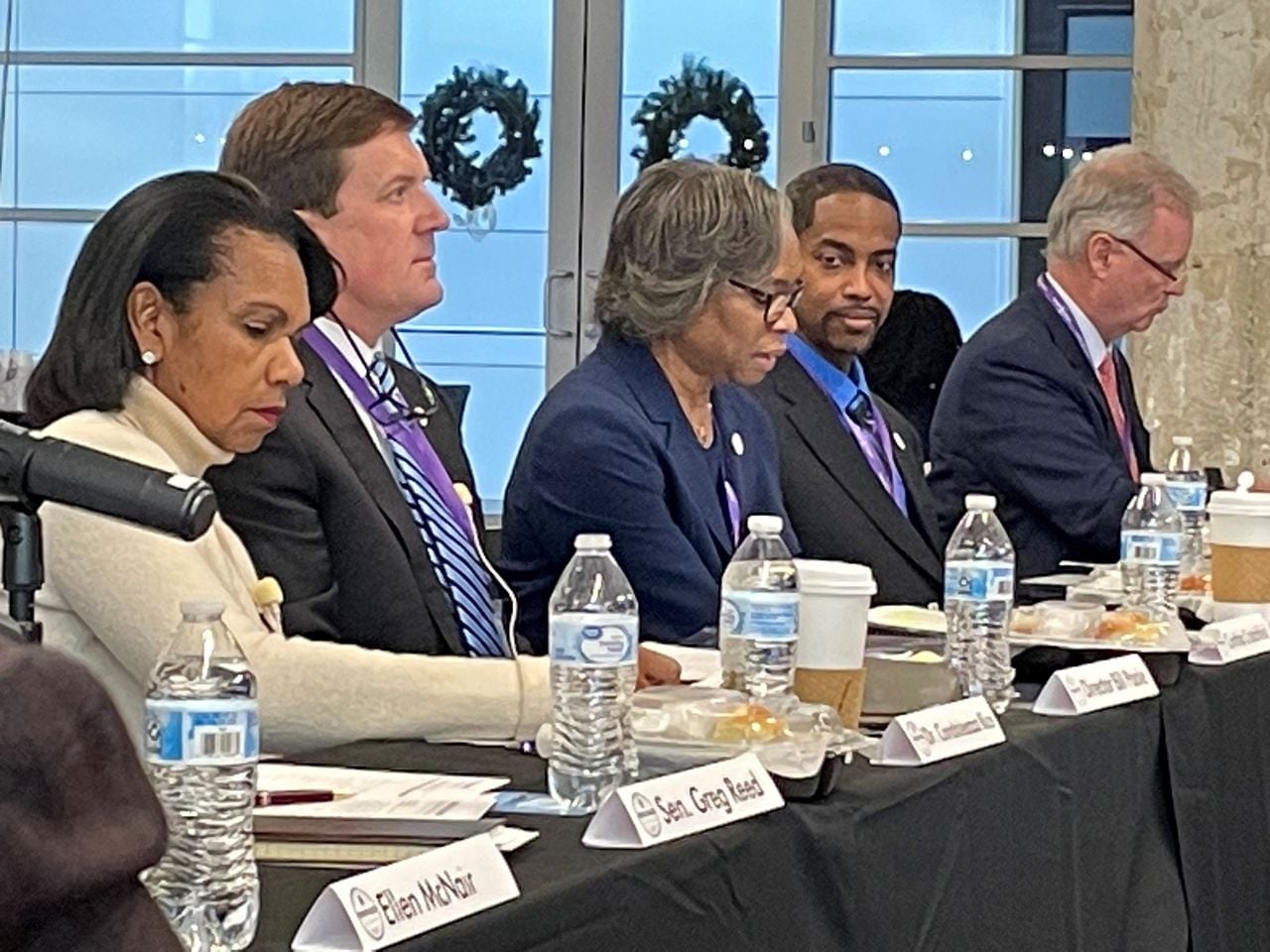Whatâs happening with venture capital in Alabama?
Alabama isn’t Silicon Valley – a thriving public-private ecosystem where billions of dollars seemingly fall out of the sky on tech entrepreneurs hoisting up the brightest ideas to catch them.
But that hasn’t stopped the state’s policy makers and industry insiders from working to nudge the game a little further in the state’s favor.
Some measure of that was on display Thursday at Birmingham’s Innovation Depot, where members of the Alabama Innovation Commission gathered to celebrate the work of Innovate Alabama, a corporation founded following a state commission to foster innovation and entrepreneurship.
A key component of Innovate Alabama is improving business owners and startups access to venture capital, and at a time when inflationary and recession worries are drying up potential investors nationwide.
Fast Company reported a dismal 2023 for venture capital, with startups in the U.S. having raised $126 billion through the year’s first three quarters. That’s well below the $195 billion at the same time last year, and significantly behind the $239 billion raised during the first nine months of 2021.
But on Thursday, members of Innovate Alabama were touting work done to improve the state’s investment possibilities for visionary entrepreneurs.
Innovate Alabama CEO Cynthia Crutchfield said a “huge focus” of the work done in the past year by the organization has been about improving access to capital.
Currently, Innovate Alabama has a supplemental grant program that has already awarded $10 million to 50 small businesses in nine cities. Eleven of those businesses are women or minority-owned. There’s also $25 million in tax credits for rural and underrepresented small businesses, and another $10 million awarded through the Innovate Alabama Network.
Miller Girvin with the Economic Development Partnership of Alabama (EDPA) said the supplemental grant program has helped create about 200 jobs within the last 12 months.
“That’s pretty awesome, to start this program from virtually nothing,” she said.
Other outreaches involve allowing out-of-state businesses to apply for grants, provided they relocate offices to Alabama and the majority of their leadership and workforce resides in the state.
One outlet for funding is the State Small Business Credit Initiative (SSBCI), which offers roughly $98 million in federal funding to small businesses. Crutchfield called the program “daunting” in terms of the complexity in getting it off the ground next year, but that it could sustain Alabama’s business ecosystem for many years to come.
One person who can testify to the effect grants can have on his business is Mark Froehlich, CEO of Birmingham’s Analytical AI, a company using artificial intelligence in security applications for government and private companies.
His company received two grants, which he said allowed him to hire an additional two Alabama-based AI engineers before his firm might otherwise be able to afford them.
“That allowed us to compete for a $20 million contract, the largest in our four-year company history,” he said. “We could not have done it without them.”
Former Secretary of State Condoleeza Rice, a member of the Alabama Innovation Commission who attended Thursday’s meeting, asked if the venture capital landscape was shifting. Companies anxious to flee China or relocate capital are looking to other locations besides California, New York and Massachusetts, she said.
While that’s true, organizers said Alabama may have more success with early stage innovators.
Realistically, none of Alabama’s current funding totals are going to make California nervous. San Francisco, Oakland and Silicon Valley still account for $15.2 billion, or 41%, of the nation’s venture investments, according to the San Francisco Standard.
But programs like SSBCI are aimed at expanding the number of lenders and “infusing capital in high growth innovative companies that will hire in Alabama, build in Alabama and create wealth in Alabama,” said Rodney Sampson with the program.
“Our goal is to achieve through the program at least 3X return in term of portfolio construction, and all those profits stay with Innovate Alabama,” he said, which might mean a swelling, self-sustaining eco-system of opportunity.
